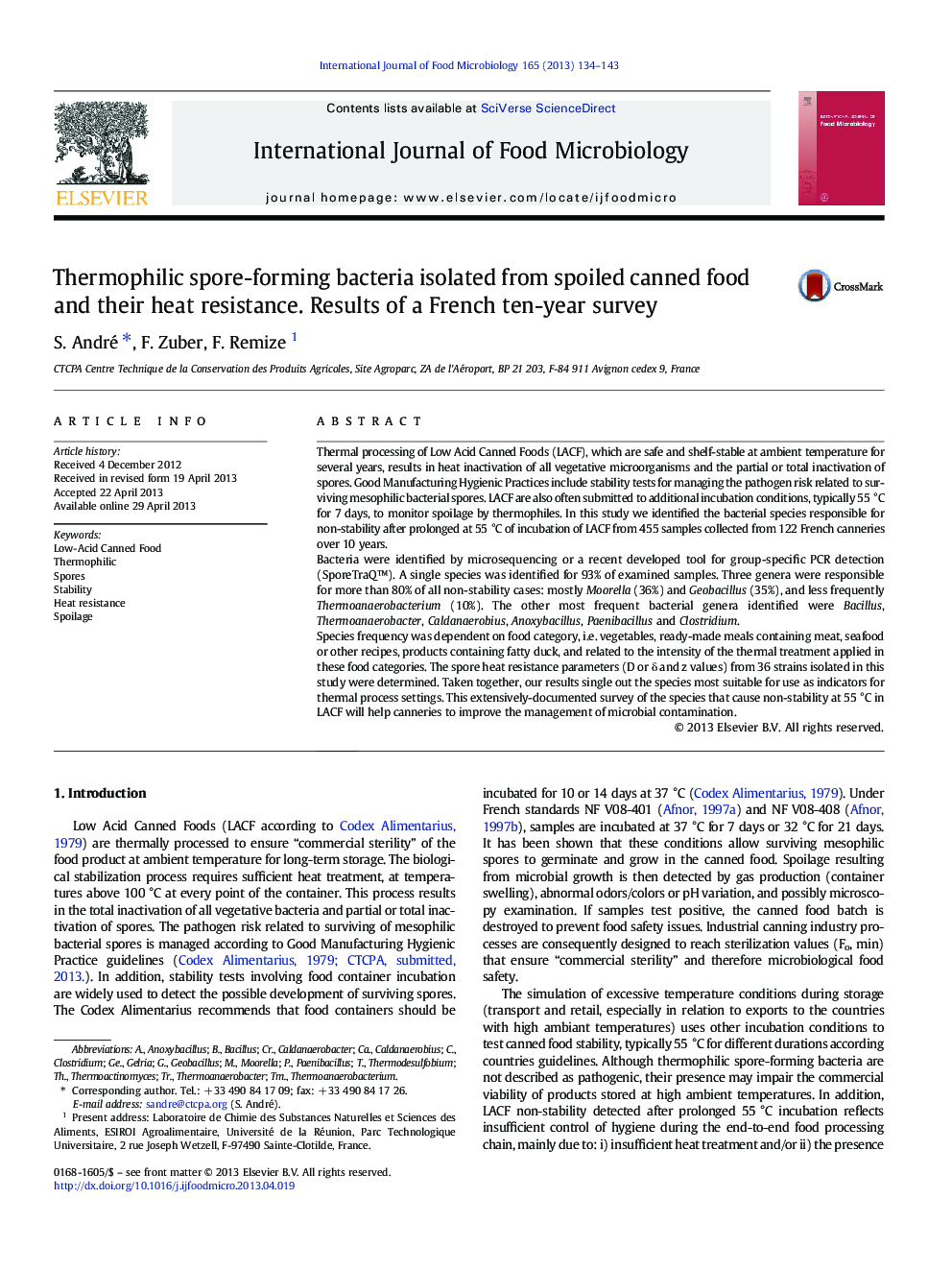| Article ID | Journal | Published Year | Pages | File Type |
|---|---|---|---|---|
| 4367098 | International Journal of Food Microbiology | 2013 | 10 Pages |
•455 samples of non-stable LACF from 122 canneries were collected over 10 years.•From 93% of samples only one species was isolated.•Two species represented 69% of spoilage cases.•Different hygienic indicators are proposed for different food categories.
Thermal processing of Low Acid Canned Foods (LACF), which are safe and shelf-stable at ambient temperature for several years, results in heat inactivation of all vegetative microorganisms and the partial or total inactivation of spores. Good Manufacturing Hygienic Practices include stability tests for managing the pathogen risk related to surviving mesophilic bacterial spores. LACF are also often submitted to additional incubation conditions, typically 55 °C for 7 days, to monitor spoilage by thermophiles. In this study we identified the bacterial species responsible for non-stability after prolonged at 55 °C of incubation of LACF from 455 samples collected from 122 French canneries over 10 years.Bacteria were identified by microsequencing or a recent developed tool for group-specific PCR detection (SporeTraQ™). A single species was identified for 93% of examined samples. Three genera were responsible for more than 80% of all non-stability cases: mostly Moorella (36%) and Geobacillus (35%), and less frequently Thermoanaerobacterium (10%). The other most frequent bacterial genera identified were Bacillus, Thermoanaerobacter, Caldanaerobius, Anoxybacillus, Paenibacillus and Clostridium.Species frequency was dependent on food category, i.e. vegetables, ready-made meals containing meat, seafood or other recipes, products containing fatty duck, and related to the intensity of the thermal treatment applied in these food categories. The spore heat resistance parameters (D or δ and z values) from 36 strains isolated in this study were determined. Taken together, our results single out the species most suitable for use as indicators for thermal process settings. This extensively-documented survey of the species that cause non-stability at 55 °C in LACF will help canneries to improve the management of microbial contamination.
